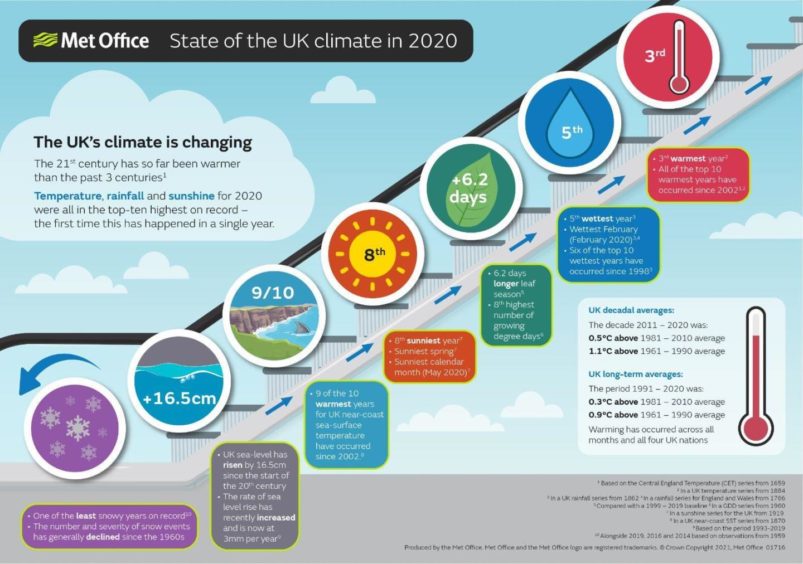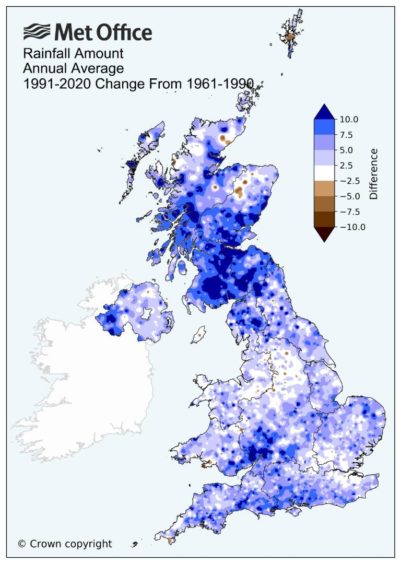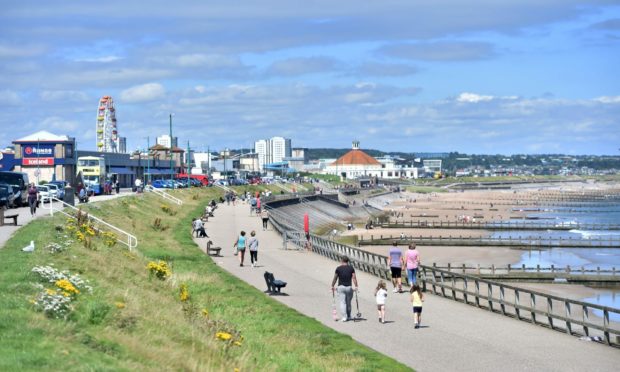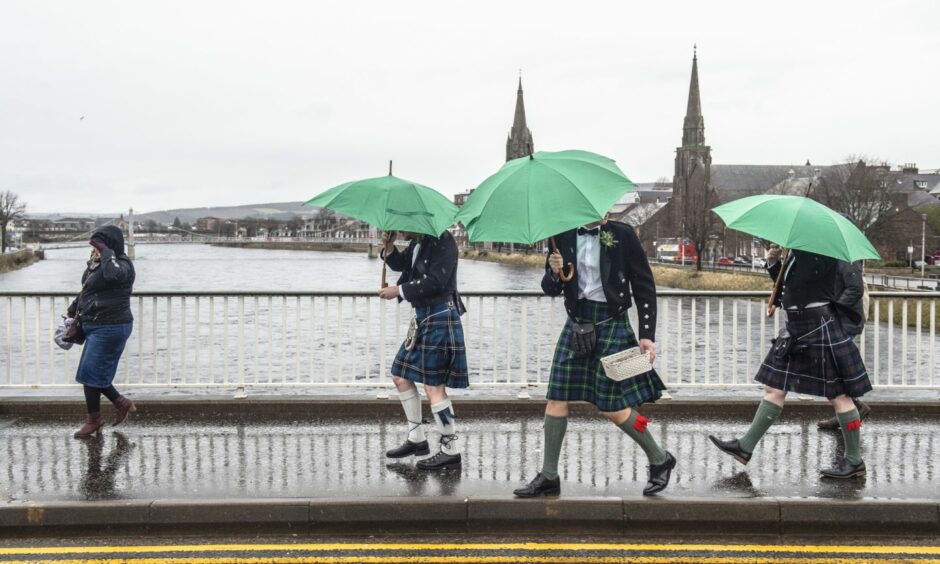Experts have warned the evidence of climate change is already being felt across the UK with more extreme weather during 2020.
Last year ranked in the top 10 years on record for temperature, rain and sunshine due to global warming.
The findings have been published by the Royal Meteorological Society, who warn 1991 to 2020 has been 0.9C warmer on average than the preceding 30 years – with the trend evident across all months and all parts of the UK.
What is happening with our weather?
It is not just getting hotter, it is also getting wetter.
The Royal Meteorological Society has found that six of the 10 wettest years on record since 1862 have happened since 1998.
Storm Ciara and Dennis, which hit the north and north-east only days apart, contributed to the wettest February on record for the UK while bringing snow, floods and wreaking havoc.
And 2020 was recorded as the third warmest, fifth wettest and eighth sunniest on record amid climate change.

Lead author of the report, Mike Kendon, who is a senior climate scientist at the Met Office, said: “2020 was another notable year for the UK climate, with records broken for daily rainfall and monthly sunshine hours.
“Average temperatures for the UK continue to climb, with nearly a degree of warming when comparing the most recent 30 years with the preceding 30-year period.
“Last year saw some significant weather extremes including severe flooding from heavy rainfall in February and a major heatwave in early August.”
Meanwhile, 2020 was one of the least snowy years on record while it was the seventh year in a row where frosts were below the 1981 to 2010 average.
Highs and lows in 2020
- Highest temperature – 37.8C, Heathrow Airport, July 31
- Lowest temperature – -10.2C, Braemar, February 13 and Dalwhinnie, December 30
- Highest daily rainfall – 9.4 inches, East Wretham, Norfolk, August 16
- Highest daily sunshine – 16.8 hours, Fair Isle, June 16
- Highest gust speed – 132mph, Cairngorm summit, February 3
How are we seeing climate change?
Sea level rise ‘accelerating’ from climate change
The report has warned that the rise of sea levels across the UK has “accelerated” over recent years – heightening the risk of flooding.
The increase was measured at 1.5mm per year from the start of the 20th century.
However, from 1993 it has now double to more than 3mm per year while sea temperatures have been 0.7C warmer between 2011 and 2020 compared to the 1961 to 1990 average.

Professor Ed Hill, director of the UK’s National Oceanography Centre, said: “Based on five long‐running stations dating back to the beginning of the 20th century, UK sea level has risen by nearly 2cm (0.7ins) per decade over the 60 years to 2018 and an immediate consequence will be higher extreme sea levels during high tides and storms which cause flooding.”
Earlier first leaf and bare tree dates have also been recorded while climate change impacts on nature and wildlife.

